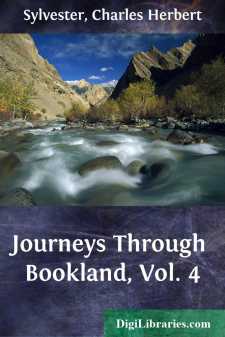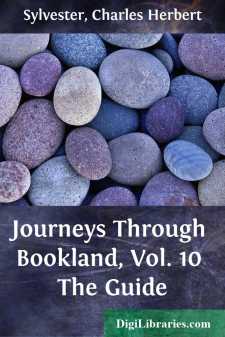Categories
- Antiques & Collectibles 13
- Architecture 36
- Art 48
- Bibles 22
- Biography & Autobiography 816
- Body, Mind & Spirit 145
- Business & Economics 28
- Children's Books 18
- Children's Fiction 14
- Computers 4
- Cooking 94
- Crafts & Hobbies 4
- Drama 346
- Education 58
- Family & Relationships 59
- Fiction 11834
- Foreign Language Study 3
- Games 19
- Gardening 17
- Health & Fitness 34
- History 1378
- House & Home 1
- Humor 147
- Juvenile Fiction 1873
- Juvenile Nonfiction 202
- Language Arts & Disciplines 89
- Law 16
- Literary Collections 686
- Literary Criticism 179
- Mathematics 13
- Medical 41
- Music 40
- Nature 179
- Non-Classifiable 1768
- Performing Arts 7
- Periodicals 1453
- Philosophy 66
- Photography 2
- Poetry 897
- Political Science 203
- Psychology 45
- Reference 154
- Religion 516
- Science 126
- Self-Help 86
- Social Science 82
- Sports & Recreation 34
- Study Aids 3
- Technology & Engineering 59
- Transportation 23
- Travel 463
- True Crime 29
Our website is made possible by displaying online advertisements to our visitors.
Please consider supporting us by disabling your ad blocker.
Journeys Through Bookland, Vol. 7
Categories:
Description:
Excerpt
THE DAFFODILS
By William Wordsworth
I wandered lonely as a cloud
That floats on high o’er vales and hills,
When all at once I saw a crowd,—
A host of golden daffodils
Beside the lake, beneath the trees,
Fluttering and dancing in the breeze.
Continuous as the stars that shine
And twinkle on the Milky Way,
They stretched in never-ending line
Along the margin of a bay:
Ten thousand saw I, at a glance,
Tossing their heads in sprightly dance.
The waves beside them danced, but they
Outdid the sparkling waves in glee;
A poet could not but be gay
In such a jocund company;
I gazed—and gazed—but little thought
What wealth the show to me had brought.
For oft, when on my couch I lie,
In vacant or in pensive mood,
They flash upon that inward eye
Which is the bliss of solitude;
And then my heart with pleasure fills,
And dances with the daffodils.
When we look at this little poem we see at a glance that the stanzas are all the same length, that the rhyme scheme is ababcc (see “To My Infant Son,” Vol. VI), and that the indentation at the beginning of the lines corresponds with the rhymes. This poem, then, is perfectly regular in form.
There are other things, however, which go to make up perfect structure in a poem. First and foremost, the words are so arranged that the accented syllables in any given line come at regular intervals. Take, for instance, the first two lines of this poem. Each line contains eight syllables. If you number these syllables 1, 2, 1, 2, 1, 2, 1, 2, you will see that it is the second one each time that bears the accent, thus:
I wan´dered lone´ly as´ a cloud´
That floats´ on high´ o’er vales´ and hills´.
Now, if you read the four remaining lines of the stanza you will see that in each one of these the second syllable bears the accent, until you come to the last line, where in the word fluttering, which, by the way, you pronounce flutt´ring, the accent is on the first syllable. If the poet did not now and then change the accent a little it would become tedious and monotonous.
It is a very simple matter, you see, to separate every line of poetry into groups of syllables, and in every group to place one accented syllable and one or more syllables that are not accented. Such a group is called a foot. Thus in each of the first two lines in this poem there are four feet. Each foot contains an accented and an unaccented syllable.
If you examine , , and , the three poems which follow this, you will see the same structure, except that in and in there are some short lines and some double rhymes, making the last foot a little different in character from the others.
When a line of poetry is composed of two-syllable feet in which the second syllable bears the accent we call that meter iambic. It is the prevalent foot in English poetry, and if you examine the different poems in these volumes you will be surprised to find out how many of them are written substantially on the plan of .
In naming the meter of a poem two things are considered: First the character of the feet, and second, the number of feet. In this poem the feet are iambic and there are four of them, consequently we name the meter of this poem iambic tetrameter. Whenever you hear those words you think of a poem whose meter is exactly like that of .
These words seem long and hard to remember. It may help you to remember them if you think that the word iam´bic contains an iambic foot.
In naming the meter we use the Greek numerals—mono (one), di (two), tri (three), tetra (four), penta (five), hexa (six), hepta (seven), and octa (eight), and add to them the word meter, thus: Mo-nom´e-ter, a line containing one foot, dim´e-ter, trim´e-ter, te-tram´e-ter, pen-tam´e-ter, hex-am´e-ter, hep-tam´e-ter, and oc-tam´e-ter.
...








